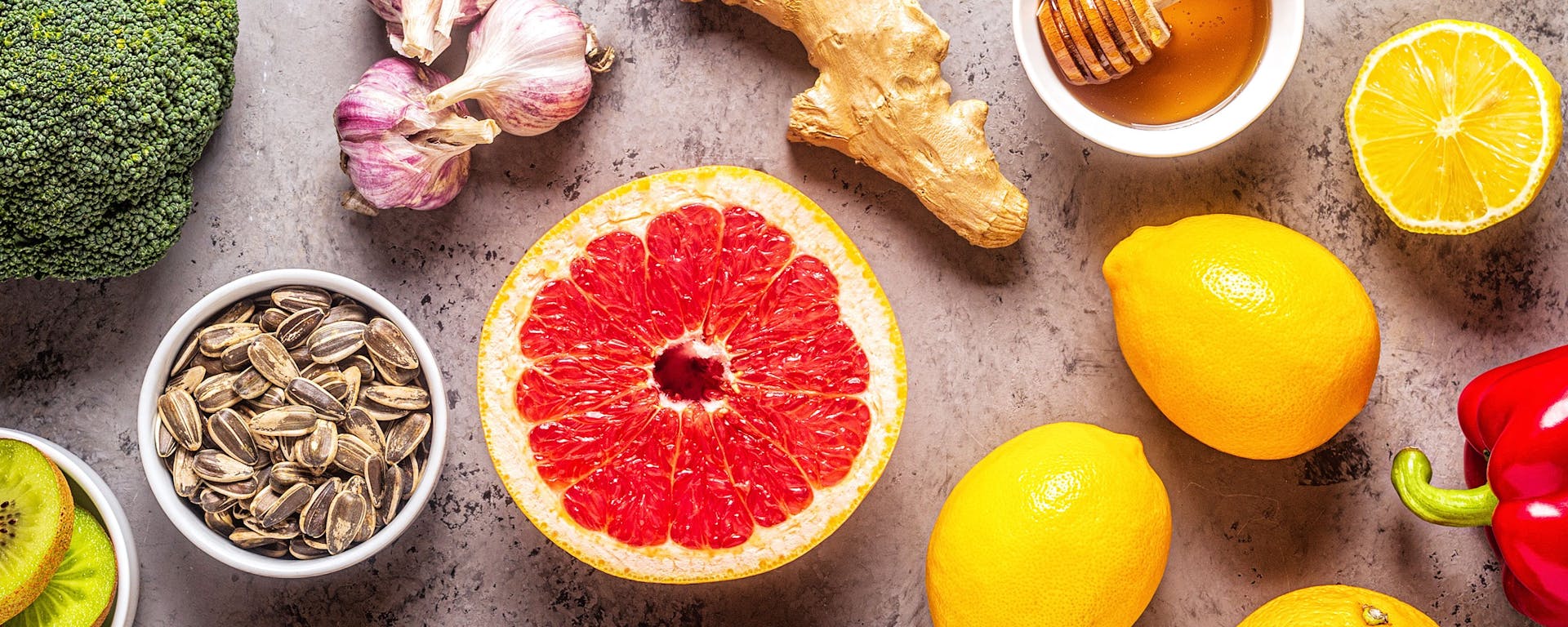Help Your Body Help You

Become Best Mates with Your Immune System
With so much about the spread of germs being outside of our control, here's a little ray of hope. Our very best defense against germs, viruses and anything else that wants to take us down is our own bodies. Which means it's our job to keep them at peak performance.
If that sounds onerous, it's actually easier than you think. You just have to give your body what it wants – and needs.
What's an Immune System?
First, the basics. ‘This is how I explain it to my kids,’ starts certified integrative health coach Sarah White. ‘Our bodies are an incredible army – they innately have this immune defence. They can fight against anything. So our job is to ask, “How can I be sure that army is always strong and on top of things? How do I fuel that army to keep it going?”’
Three Ways to Up Your Immune Response Game
1. Diet
This isn't about reacting, like a mad dash for orange juice when you start to feel sick. The key is sustaining a healthy diet all the time. Load up on vitamins, minerals and nutrients. Make sure your body is getting what it loves: lots of fruits, vegetables and water. ‘Make sure it is a colourful plate, and it is from the Earth,” says White. ‘If you do that, you're fueling your body with what Mother Nature intended.’ This allows your body's immune response to perform at its highest level.
This means avoiding the bad stuff, like excessive added sugars. Things your body doesn't need. Why? Two reasons: (1) they don't have the vitamins and minerals your body requires, and (2) your body will use its energy trying to figure out what to do with this unhelpful stuff, instead of fighting infection. Back to the army analogy: let's not distract the troops!
Where's the Beef?
All this talk about vegetables doesn't mean you need to go vegetarian. Meat can, in fact, be part of a healthy diet. The key, says White, is to know where it is coming from and to ensure it’s all natural.
Feed Your Immune System
Red Bell Peppers
These veggies have twice as much vitamin C as oranges! Vitamin C repairs cells and encourages the production of white blood cells (the infection fighters within your body).
- Citrus Fruits
Oranges, tangerines, lemons, limes and grapefruits are all great sources of vitamin C. - Turmeric
This golden root is packed with powerful anti-inflammatories. Anti-inflammatories do exactly what the name suggests: reduce swelling and inflammation, which is often caused by your body defending itself against germs or infection. Inflammation can weaken the body’s immune response too – causing your immune system not to function at peak performance. - Spinach
It’s loaded with vitamin C. (Notice a theme here?) Spinach also contains antioxidants, which fight free-radicals – a fancy word for unstable molecules that want to harm your good cells. - Water
There are so many reasons to drink water, right? It helps your kidneys flush toxins out of your body, your cells to take in nutrients and your body to expel waste. - Ginger
This root is great for gut health, which strengthens bodies' immunity. - Garlic
Recognised by ancient civilizations for its infection-fighting properties, garlic is loaded with sulfur compounds which boost immune response.
2. Sleep
The single biggest factor in strengthening your immune system is getting enough sleep. Our cells regenerate (fix themselves) at night when the body is at rest with no stress. ‘This is why women are obsessed with night creams!’ says White. ‘Cells are repairing themselves, rebuilding at night.’ You've no doubt seen proof of this yourself. When you get sick, your body is fatigued and tells you that you need sleep. Once that happens, you probably feel better – because your body went to work fixing itself.
3. Exercise
When we get moving, it gets our blood flowing and oxygen gets delivered more efficiently throughout the body. Oxygen is fuel for healthy cells. Studies have repeatedly shown that people whose lifestyle includes regular moderate exercise are less likely to catch a cold or the flu – and when they do, the case tends to be less severe. One reason for this is that exercise appears to increase your white blood cells (the ones that fight off infection).
Finally, and perhaps the wisest advice to keep in mind: ‘The goal is not to be the skinniest person or the fittest person’, says White, ‘it's to be the healthiest person, whatever that means to you.’ Remember: your body's superpower is fighting infection. If you take care of your body, it will take care of you.
The contents of this article are for informational purposes only. It is recommended that you see your doctor or registered dietician before making any changes to your diet.
